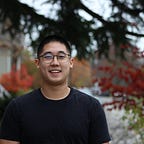The Invisible Foreigner
Person: “So, where are you from?”
Me: “Born and raised in Canada.”
Person: “No, like where are you really from?”
Me: “Well, I was born in Newfoundland, but I spent most of my life in BC.”
Person: “Fine, where is your family from?”
Me: [Sigh]
We have all heard this conversation play out and anyone who grew up in North America would have witnessed this a handful of times in their lives. For a Canadian born Chinese like myself, it’s a conversation that has simply become a regular occurrence. Despite accepting that people will always ask me this question, it still irritates me each and every time. Most often it makes me wish that I didn’t physically appear different and stand out as a minority in North America. However, somewhat ironically, this wish has actually become a reality after spending 2 months in Japan.
Physically different-looking foreigners usually get some sort of special treatment in many countries in Asia and Japan is no exception. Locals often ask them for photos, amazed by their foreign looks and envious of the fact that they can speak English. When they seem lost, it won’t take long until someone notices and tries to give assistance. Upon walking into restaurants, they are immediately given an English menu and spoken to in English. If they can speak a few words in Japanese, the locals are quite fascinated. And most importantly, locals overlook or discount actions that break any cultural norms because it is clear that they aren’t native.
For me however, I don’t get the same privilege. Although my ancestral background is Chinese and I don’t speak a word of Japanese, people still assume that I’m a local at first glance. When I’m walking on the streets or looking for directions, I blend in with the crowd and able to go unnoticed. Everywhere I go, I’m spoken to in Japanese and given a perplexed look when they discover that I don’t know the language. When I forget minor cultural gestures like bowing or don’t adhere to Japanese table manners, I’m given harsh stares. When I break minor laws on the streets (ones that I don’t know about), I’m immediately scolded by those around me.
I may be a foreigner, but my ethnicity makes me appear otherwise. However, it hasn’t always been bad to be able to blend in with the Japanese population. I’ve gotten into many restaurants that usually refuse to serve foreigners. I don’t have to worry about people watching my every move in public. I’m able to develop more meaningful relationships with locals, since our initial interactions aren’t purely based on the fact that I’m not from Japan. And the expectation for me to follow their traditions has forced me to truly embrace the culture that lives in the country.
Although not looking like a minority has its benefits, it made me realize that looking ethnically different is what truly made me who I am today. It’s nice being able to blend in with the native Japanese people, but much harder to make myself noticed in the society. In Canada, I hated being a minority, but coming to Japan has made me realize that it was in fact a good thing after all. It was so much easier to stand out from the rest of the crowd and my presence was easily noticed. Whether it be trying out for sports teams, campaigning for student elections, or going through job interviews, my appearance made it simple for people to remember who I was and made it easy to distinguish me from the rest of the candidates. Growing up in majority caucasian communities, I can’t deny that have I never faced discrimination. In fact, my whole life has consisted of dealing with racism. However, for the most part, I had been given more attention than others and it was always up to me how I would use it to my advantage.
Now that I’m in a place where people automatically assume I’m from Japan, it surprisingly brings excitement when people find out I’m actually a foreigner and asks where I’m from. In fact, the conversation nowadays usually go like this:
Person: “So, where are you from?”
Me: “Canada!! And yes, our country just turned 150 years old! And yes, we have the coolest Prime Minister in the world right now! And yes, I love poutine and maple syrup!”
Person: “Woah, Sugoi ne!” <Translation: Wow, that’s amazing!>
Me: “Oh, and my parents were originally from China! So I speak Cantonese too!”
#CansbridgeFellowship2017
